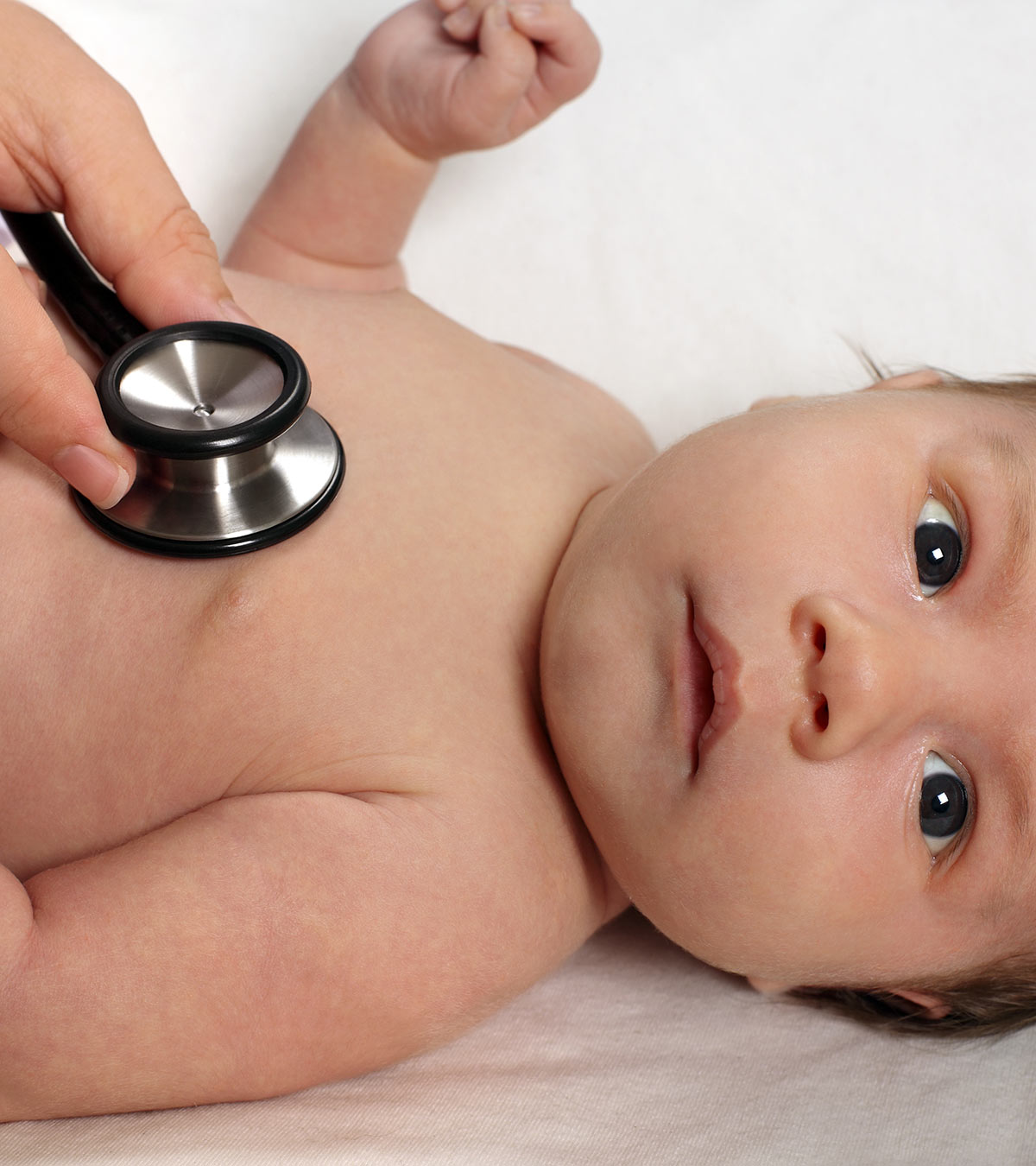What are the Common Problems of Newborns?
Common problems of newborns include issues with feeding, jaundice, and sleep. Newborns may struggle with breastfeeding or bottle-feeding, leading to weight loss and dehydration.
Many infants also experience jaundice, a condition that causes yellowing of the skin and eyes due to an excess of bilirubin in the blood. Additionally, newborns typically sleep for the majority of the day but may struggle with a disrupted sleep schedule.
Identifying and addressing these common problems of newborns is crucial for ensuring a newborn’s health and well-being. In this article, we will explore these problems in greater depth, discussing their causes, symptoms, and effective treatments.

Credit: kauveryhospital.com
Problems With Breathing
Understanding The Importance Of A Newborn’S Breathing
Breathing is a crucial function that ensures the survival of a newborn. In the womb, the placenta supplies oxygen to the baby, but after birth, the baby must start breathing on their own. As a result, maintaining a consistent and healthy respiratory rate is critical.
Common Breathing Problems In Newborns, Such As Apnea, Cyanosis, And Respiratory Distress Syndrome (Rds)
Breathing problems are quite frequent in newborns, and parents should be aware of the following common respiratory issues that infants can develop:
- Apnea: This is a condition where an infant might have a pause in breathing, which can last for up to 20 seconds. In some severe cases, they might turn blue and even require medical attention.
- Cyanosis: When the baby’s skin appears to be bluish in color – especially on the face, lips, or around the mouth – this can indicate a lack of oxygen. This can also lead to respiratory distress.
- Respiratory distress syndrome (rds): A potentially serious medical condition that can affect newborns born prematurely. Babies with rds have difficulty breathing due to insufficient production of a substance in the lungs known as surfactant, which causes the lungs to collapse and impairs oxygen flow to the body’s organs.
Possible Underlying Medical Conditions That Can Cause Breathing Difficulties
In addition to the most commonly known breathing difficulties, there can be other underlying medical conditions that may lead to respiratory issues in newborns. Some of these medical conditions are:
- Pneumonia: If a baby has a high fever and experiences shortness of breath, it could be pneumonia. This is a severe condition that requires immediate medical attention.
- Congenital heart disease: In some cases, babies might have been born with a structural issue causing breathing difficulty. These issues, if left unattended, could lead to long-term health consequences.
- Croup: A respiratory infection that causes swelling of the airways, leading to noisy breathing and a harsh, barking cough. It can cause breathing problems in young children and requires medical attention.
It is essential to keep a close eye on newborns’ breathing patterns to detect any potential issues early on. If you observe any breathing difficulties in your baby, don’t hesitate to contact your healthcare provider right away. By taking proactive measures, parents can help ensure that their newborns receive timely medical attention when needed.
Feeding Issues
Feeding is one of the main concerns for parents of newborns. Proper nutrition is crucial during the first few months of a child’s life as it lays the foundation for good health. Unfortunately, many infants experience feeding issues that make it difficult to eat or gain weight.
In this post, we will discuss the most common feeding issues in newborns, medical conditions that can cause them, and why it is important to recognize these problems early on.
Importance Of Recognizing Feeding Problems Early On
It is crucial to recognize feeding problems early on as it can affect a baby’s growth and development. Infants who do not receive enough nutrients are at risk of several health complications, such as delayed growth and development, weakened immune system, and cognitive impairment.
Additionally, feeding difficulties can create stress for both the baby and the parents. Therefore, it is essential to pay close attention to the following common feeding issues.
Common Feeding Issues In Newborns Such As Reflux, Colic, And Poor Latch
- Reflux: Reflux, also known as spitting up, is a common feeding issue in newborns. It occurs when the contents of the baby’s stomach back up into the esophagus. The infant may spit up small amounts of milk after feeding, or it can come out in larger amounts. The reflux is usually harmless and resolves on its own as the baby’s digestive system develops. However, in some cases, it can cause discomfort and lead to poor weight gain.
- Colic: Colic is a term used to describe frequent and prolonged crying in a baby who appears to be otherwise healthy and well-fed. Colic usually arises during the first few weeks of life, and the exact cause is unknown. However, it is often attributed to digestive issues, such as gas or an immature digestive system. Infant colic can be distressing for both the baby and the parents, and there is no cure for it.
- Poor latch: A good latch is essential for successful breastfeeding. However, some infants have difficulty latching on properly, which can result in a reduced milk supply, painful breastfeeding, and weight loss. Poor latch can be due to several factors, such as tongue-tie, cleft lip or palate, or the baby’s mouth structure.
Possible Medical Conditions Causing Feeding Issues
Sometimes, feeding difficulties in newborns can be due to underlying medical conditions. Here are some of the most common medical conditions that can cause feeding issues:
- Gastrointestinal issues: Newborns with gastrointestinal issues, such as acid reflux, food allergies, or lactose intolerance, can experience feeding difficulties. These conditions can cause discomfort, vomiting, diarrhea, and slow weight gain.
- Premature birth: Premature infants may have problems with feeding due to an underdeveloped digestive system. They may also have difficulty coordinating suck-swallow-breathe patterns, leading to frequent pauses during feeding.
- Neurological issues: Infants with neurological issues, such as cerebral palsy, may have difficulty swallowing or coordinating their tongue and mouth muscles during feeding.
Recognizing feeding problems early on is crucial for a newborn’s health and well-being. Feeding difficulties can be due to common issues, such as reflux, colic, or poor latch, or underlying medical conditions. Consulting a pediatrician can help identify the underlying cause of feeding difficulties and ensure that the baby receives proper nutrition and care.
Skin Problems
Understanding Common Skin Issues For Newborns
A baby’s skin is delicate and sensitive, more so during the first months of their life. It is crucial to learn about the common skin problems that newborns face to take proper measures to prevent and treat them. Here are the most common newborn skin problems:
Common Skin Problems That Newborns Experience Such As Eczema, Rashes, And Acne
- Eczema: This is a chronic skin condition that causes red, itchy patches on the skin. In newborns, eczema often appears on the face, scalp, and neck.
- Rashes: Newborns can develop a range of rashes, including diaper rashes, heat rashes, and milk rashes. Diaper rashes occur mainly due to prolonged contact with wet diapers, heat rashes when the skin is exposed to heat, and milk rashes due to the blocked sweat glands.
- Acne: Many newborns develop acne, which appears as small, red pimples on the face. Acne in newborns is due to the hormones passed on by the mother during pregnancy.
Prevention And Treatment Options For Newborn Skin Problems
Prevention and treatment for newborn skin problems involve a combination of skincare, hygiene, and medical treatments. Here are some tips for the prevention and treatment of common newborn skin problems:
- Keep the baby’s skin clean and dry by changing diapers frequently and cleaning the baby’s bottom with a mild, fragrance-free soap and lukewarm water.
- Avoid exposing the baby’s skin to extreme temperatures.
- Use fragrance-free, hypoallergenic baby products.
- For eczema, consult a pediatrician and use medicated creams or ointments as recommended.
- For rashes, keep the affected area clean and dry and consult a pediatrician for proper treatment.
- For acne, avoid using lotions and oils on the baby’s face and gently clean affected areas with lukewarm water.
Overall, understanding common skin problems for newborns, such as eczema, rashes, and acne, can help parents take the necessary steps to prevent and treat them. With proper skincare, hygiene, and medical treatment, most skin problems can be managed effectively, allowing the baby to grow and thrive healthily.
Circulation Problems
Understanding Circulation Issues In Newborns
Circulation plays a vital role in maintaining the health of a newborn. When the blood flow is not optimal, it can result in various problems. Circulation issues in newborns can be a sign of an underlying health condition. Identifying and treating these issues at an early stage is crucial to prevent further complications.
Common Circulation Issues Such As Jaundice, Blue Baby Syndrome, And Blood Clotting Disorders
Jaundice is a common circulation problem in newborns that occurs due to the buildup of bilirubin, a yellow pigment, in the blood. Blue baby syndrome is a condition that causes cyanosis, a bluish discoloration of the skin, and occurs when there is a lack of oxygen in the blood.
Blood clotting disorders can cause abnormal blood clotting and excessive bleeding in the baby.
Medical Treatments For Addressing Circulation Problems In Newborns
Medical treatment for circulation problems depends on the underlying cause. Jaundice can be treated by phototherapy or blood transfusion. Blue baby syndrome can be treated by oxygen therapy or surgical repair. Blood clotting disorders can be managed by clotting factor supplementation or blood transfusion.
Circulation issues in newborns can be challenging to diagnose and treat. Early intervention is essential to prevent complications and promote the baby’s overall health. Regular visits to a pediatrician and monitoring the baby’s development can help diagnose and treat circulation problems effectively.
Infection
Importance Of Recognizing And Addressing Infections In Newborns
The first few weeks of a newborn’s life are critical in their development. Any infections that go undetected or untreated can lead to lifelong health problems. Therefore, it is vital to recognize and address infections as early as possible to prevent any complications.
Here are some key points to keep in mind:
- A newborn’s immune system is not yet fully developed, making them more susceptible to infections.
- Symptoms of infections in newborns can be subtle and easily confused with other conditions, so it’s crucial to be vigilant.
- Procrastination can make an infection worse, leading to more complications and a longer recovery time.
Common Infections In Newborns Such As Pneumonia, Meningitis, And Sepsis
Newborns are prone to various infections due to their underdeveloped immune system and exposure to the environment. Some common infections that can affect newborns are pneumonia, meningitis, and sepsis. Here are some crucial points to know about each infection:
Pneumonia:
- Pneumonia is an infection of the lungs, and it can be bacterial, viral, or fungal.
- Symptoms of pneumonia in newborns can include rapid breathing, fever, lethargy, coughing, and decreased appetite.
- Regular check-ups can help detect pneumonia early, which can lead to a better prognosis.
Meningitis:
- Meningitis is an infection of the protective membranes surrounding the brain and spinal cord.
- Symptoms of meningitis in newborns can include high fever, rapid breathing, vomiting, seizures, and sensitivity towards bright light.
- Meningitis can result in hearing loss, brain damage, and even death if left untreated.
Sepsis:
- Sepsis is a severe infection affecting a baby’s entire body.
- Symptoms of sepsis in newborns can include high or low body temperature, rapid breathing, lethargy, and skin rash.
- Immediate medical attention is necessary in case of sepsis to prevent it from progressing to septic shock, which can be fatal.
Importance Of Regular Check-Ups And Preventative Measures
Prevention is better than cure, and this applies to newborns’ health as well. Regular check-ups can help identify potential problems early on, leading to quicker treatment and a better outcome. Here are some essential points to remember:
- Consult a pediatrician regularly to ensure that the child is growing and developing as expected.
- Vaccinations can help protect babies from infections, and it’s crucial to follow the recommended vaccination schedule.
- Proper hygiene practices, such as washing hands before handling the baby, can help prevent the spread of infections.
Infections can affect newborns, leading to serious health problems and even death. Recognizing and addressing infections early on is crucial to prevent complications. Regular check-ups, vaccinations, and maintaining proper hygiene practices can help keep newborns healthy. Remember that prevention is better than cure, and taking preventive measures can go a long way in safeguarding a newborn’s health.
Digestive Issues
Importance Of Recognizing Digestive Problems In Newborns
It is essential to recognize digestive problems in newborns as they can cause discomfort and affect their overall health and development. Early detection and treatment can also prevent complications. Here are some reasons why recognizing these issues is important:
- Newborns rely solely on milk for their nutrition, making digestive problems a critical issue.
- Undiagnosed digestive problems can cause weight loss, irritability, and sleeping difficulties in newborns.
- Digestive problems can lead to complications such as dehydration and malnutrition if left untreated.
Understanding Common Digestive Issues, Such As Constipation, Diarrhea, And Gastroesophageal Reflux Disease (Gerd)
Many newborns experience digestive problems from time to time, and it’s essential to recognize and understand them to provide proper care. The most common digestive issues in newborns are constipation, diarrhea, and gastroesophageal reflux disease (gerd). Here’s a closer look at each of them:
Constipation
- Infrequent bowel movements or difficulty passing stools.
- Stools can be hard, dry, and pellet-like, making it painful for the baby to pass.
- Causes can include dehydration, formula changes, or underlying medical issues like hirschsprung’s disease.
Diarrhea
- Frequent, watery bowel movements.
- Can lead to dehydration, and if left untreated, can become life-threatening.
- Causes can include food allergies, viral or bacterial infections, or changes in formula.
Gastroesophageal Reflux Disease (Gerd)
- A digestive disorder where stomach acid flows back into the esophagus, causing discomfort and irritation.
- Symptoms include fussiness, spitting up, and difficulty feeding.
- Causes can include an immature digestive system, allergies, or underlying medical conditions.
Medical Treatments And Natural Remedies For Digestive Problems
Digestive problems in newborns can be treated with both medical and natural remedies, depending on the severity and underlying cause. Here are some options for treating common digestive problems:
Constipation
- Offer more fluids to keep the baby hydrated.
- Gently massage the baby’s abdomen to stimulate bowel movements.
- If necessary, a pediatrician can prescribe stool softeners or other medications.
Diarrhea
- Increase fluid intake to prevent dehydration.
- Switch to a different formula if the baby is formula-fed.
- If necessary, medications to treat underlying causes can be prescribed.
Gastroesophageal Reflux Disease (Gerd)
- Offer smaller, more frequent feedings to prevent overfeeding.
- Elevate the baby’s head during feedings and after meals to prevent reflux.
- If necessary, a pediatrician can prescribe medications to reduce acid production or treat underlying causes.
Natural remedies for digestive problems can also be tried, such as probiotics or changes in diet, but it’s important to discuss them with a pediatrician before trying. Overall, recognizing and addressing digestive problems in newborns is crucial for their health and wellbeing.
Neurological And Behavioral Problems
As parents, the arrival of a newborn brings immense joy but also a feeling of responsibility. The safety and well-being of the newborn is paramount, and every possible measure should be taken to ensure that they are physically and mentally healthy.
However, some newborns may experience neurological and behavioral problems, which can be worrying for parents. In this section, we will discuss the common problems that newborns might face regarding behavior and neurological health, their early detection, and the intervention required to address these issues.
Understanding Behavioral And Neurological Issues In Newborns
Newborns are susceptible to a wide range of neurological and behavioral problems that may affect their growth and development. These issues are often interconnected and can be caused by genetic, environmental, or natal factors. Here are some essential points to help you understand these problems:
- Behavioral problems can include feeding difficulties, sleeping disturbances, crying, irritability, and anxiety
- Neurological problems can include delays in the development of motor skills, such as standing and walking, seizures, and difficulty with sight and hearing
- These problems can be caused by infections, traumatic birth, oxygen deprivation, genetic factors, or brain injury
Common Issues Such As Cerebral Palsy, Autism Spectrum Disorder, And Attention Deficit Hyperactivity Disorder (Adhd)
Newborns may experience common neurological and behavioral issues such as cerebral palsy (cp), autism spectrum disorder (asd), and attention deficit hyperactivity disorder (adhd). Here are some essential points to help you understand these issues:
- Cp is a neurological disorder that affects posture, muscle tone, and movement. Cp can cause developmental delays, difficulty with motor coordination, and speech problems
- Asd is a condition that affects social communication, interaction, and behavior. Asd can cause difficulty with social interaction, nonverbal communication, and repetitive behaviors
- Adhd is a behavioral disorder that affects attention and hyperactivity. Adhd can cause difficulty with focusing, impulsivity, and hyperactivity
Early Detection And Intervention
Early detection of neurological and behavioral problems in newborns is essential for effective intervention. Timely intervention can help prevent long-term health and developmental problems. Here are some essential points to help you understand the importance of early detection and intervention:
- Regular check-ups with a pediatrician can help detect early signs of neurological and behavioral problems
- Early intervention, such as physiotherapy, occupational therapy, or speech therapy, can help manage and overcome neurological and behavioral issues
- Early intervention can increase the chances of successful treatment and improve the quality of life for the child and the family
Newborns can suffer from a wide range of neurological and behavioral problems that can affect their growth, development, and overall well-being. Understanding these issues, recognizing early signs, and timely intervention can go a long way in managing these problems. With proper care and attention, newborns can overcome their problems and lead healthy lives.
Congenital Abnormalities
Understanding Congenital Abnormalities In Newborns
Congenital abnormalities are defined as the physical and functional abnormalities present at birth. They occur due to genetic factors, environmental factors, or a combination of both. Congenital abnormalities can affect the structure and functionality of various body organs such as the heart, brain, lungs, kidneys, limbs and other body parts.
Understanding the different types of congenital abnormalities and their prevalence among newborns is essential for timely diagnosis and appropriate medical support.
Common Abnormalities Such As Cleft Palate, Spina Bifida, And Heart Defects
Cleft palate is a congenital abnormality that occurs when the baby’s lip and mouth fail to fuse during fetal development, leaving a gap. Spina bifida occurs when the spinal cord does not develop properly during fetal development, often leading to neurological problems.
Heart defects are a group of congenital abnormalities that affect the structure, function, and circulation of the heart. These abnormalities require careful medical management, including surgeries and medical interventions from a multidisciplinary team of healthcare professionals.
- Cleft palate:
- Occurs when the tissues of the lip and mouth do not fuse properly during fetal development.
- Can affect the child’s ability to eat, speak and breathe normally.
- Requires surgical intervention and speech therapy.
- Spina bifida:
- Occurs when the spinal cord does not develop properly during fetal development.
- Can cause neurological problems and disabilities that affect the child’s mobility and bladder control.
- Requires surgical intervention, ongoing monitoring and support of specialized healthcare professionals.
- Heart defects:
- Can occur in different parts of the heart and can vary in severity.
- Can cause problems with breathing and circulation.
- Requires careful medical management, medical interventions, and regular monitoring.
Medical Treatments And Interventions For Congenital Abnormalities
Medical treatments and interventions for congenital abnormalities will depend on the type, severity, and occurrence of the abnormality. These may include:
- Medications:
- To manage symptoms such as breathing difficulties and heart conditions.
- Surgeries:
- To repair the cleft palate, spina bifida, or heart defects.
- May require multiple surgeries over time.
- Therapies:
- Such as speech therapy, occupational therapy, and physical therapy.
- To help children with congenital abnormalities develop their physical and cognitive abilities.
- Support from a multidisciplinary team:
- Including specialized healthcare professionals such as pediatricians, neurologists, cardiologists, and physical therapists.
- Early intervention and ongoing support are crucial to achieving the best possible outcomes for children born with congenital abnormalities.
Understanding the challenges and medical needs associated with congenital abnormalities in newborns will help parents and caretakers make informed decisions and provide appropriate care for their child. With timely diagnosis and medical support from multidisciplinary teams, children born with congenital abnormalities can achieve healthy and fulfilling lives.
Frequently Asked Questions On What Are The Common Problems Of Newborns?
What Are The Most Common Newborn Health Problems?
Common newborn health problems include jaundice, respiratory issues, feeding difficulties, and infections.
How Do I Know If My Newborn Is Sick?
Your newborn may be sick if they have a fever, difficulty breathing, are excessively sleepy, or have a change in their appetite.
Is It Normal For Newborns To Have A Low Temperature?
A slightly low body temperature is normal in newborns, but if it falls below 97. 7°f, contact your doctor immediately.
Why Do Newborns Get Hiccups?
Newborns get hiccups due to an immature digestive system, which can cause an irritation of the diaphragm.
What Should I Do If My Newborn Has Trouble Sleeping?
Try keeping a consistent sleep routine, make the crib comfortable, and keep noise and light levels low to help your newborn sleep. If problems persist, consult with your doctor.
Conclusion
As we can see, newborns come with a set of challenges that can be overwhelming for new parents. However, these common problems of newborns are easily manageable with proper care and attention. From feeding difficulties to sleep problems, newborns require constant monitoring and care.
It is essential to understand their cues and respond accordingly. Seek medical attention when necessary, and don’t hesitate to reach out to support groups or experts to help you navigate this new journey. Remember, every newborn is unique, and what works for one may not work for another.
Patience and perseverance are key in keeping your little one happy and healthy. Your role as a parent is vital, and with proper care and attention, you can help your baby overcome any challenges and thrive in their new world.






